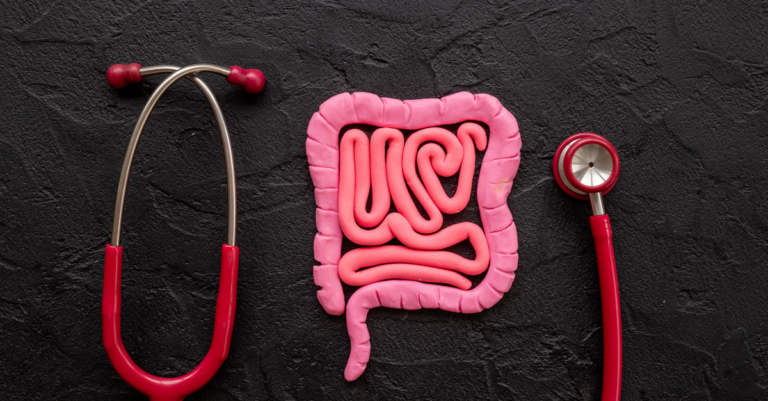 Did you know that your HealthSource NDs have the level of education needed to be able to prescribe pharmaceutical drugs and medication? Naturopathic doctors in Ontario recently came under advanced new regulations, which are fantastic – we now have prescribing rights for thyroid medication, estrogen, and progesterone (we can now prescribe it directly; instead of through a prescribing physician). These prescription drugs among others are allowed after the successful completion of a pharmaceutical prescribing course taught and administered by leading pharmacist-researchers. It means that your HealthSource NDs studied for and wrote an exam about the safety and efficacy of about 600 medications! This course and exam were optional, and Drs Reid, Thammasouk, and Krause all opted in to continue to be able to provide the best care possible to their patients. In British Columbia, naturopathic doctors write the same exam and have extensive prescribing rights for antibiotics, antidepressants, hypertension medication, and most other prescription drugs. Here in Ontario we go through the same training, and even though we are not able to prescribe medication to the same degree in the jurisdiction of Ontario, we have a profound ability to evaluate your prescriptions. Are your medications necessary? Are they the correct ones? Are they working? Are they working with the additional supplements you are taking? Are you on Atenolol? Did you know that it has the poorest performance in clinical trials of efficacy, and has the highest rates of side effects? And that over the age of 60 actually shows an increased risk of stroke (1)? Studies show there are better beta-blockers on the market. Are you on a statin? With its long list of side effects, it is useful to understand the cost-benefit analysis of taking it. The most quoted statistic will say that it decreases coronary heart disease by 30%. Sounds great, but did you know that the average overall risk in a person is around 5%? (Known as absolute risk.) Wouldn’t you feel like you could make an informed decision about your medical care if your doctor presented the information as: “Your overall risk of having a cardiovascular event like stroke or heart attack over the next 10 years is 13.3%. A statin may decrease that risk by up to 30%, which ends up bringing your absolute risk down to 9.3%. (Also, note the calculation is about an event, not death.) Note that bringing your blood pressure down 10 points (very doable through non-pharmaceutical means) would also lower your risk to 11.2%.” These are the numbers that would allow for a meaningful choice about your care (2). Are you on an antidepressant? Wouldn’t you want to know that in 2013 a top drug manufacturer was required to publish all trials on a popular antidepressant, not only the positive trials, which finally allowed for a meta-analysis that wasn’t skewed in its results? This meta-analysis showed that out of 39 trials done, this antidepressant (SSRI) called paroxetine was no better than placebo? Even at 12 weeks duration? Paroxetine is perhaps not the best drug to be taking in a situation where serious treatment must be considered. This training also emphasized some drugs that have fantastic efficacy and safety profiles, which means that they make sense to use instead of alternative treatments. Furthermore, when it comes to combining herbs or supplements with pharmaceuticals, interactions are not to be feared and avoided: they just need to be understood and the correct precautions taken. Naturopathic doctors are uniquely positioned with training in both modalities to understand and mitigate any risks. The pharmacological drug training that we at HealthSource recently completed had to do with the safety, efficacy, and administration of drugs. We are now as well as ever equipped to mediate between medications, herb and supplement interactions, and continue to practice medicine in a safe and effective way. If you have any questions not only about the efficacy and side effects of the medications you are on, but also about herb-drug interactions, we are here to answer them. (1) http://www.ncbi.nlm.nih.gov/pubmed/24750981 (2) http://www.framinghamheartstudy.org/risk-functions/coronary-heart-disease/hard-10-year-risk.php (3) http://www.ncbi.nlm.nih.gov/pmc/articles/PMC4146610/
Did you know that your HealthSource NDs have the level of education needed to be able to prescribe pharmaceutical drugs and medication? Naturopathic doctors in Ontario recently came under advanced new regulations, which are fantastic – we now have prescribing rights for thyroid medication, estrogen, and progesterone (we can now prescribe it directly; instead of through a prescribing physician). These prescription drugs among others are allowed after the successful completion of a pharmaceutical prescribing course taught and administered by leading pharmacist-researchers. It means that your HealthSource NDs studied for and wrote an exam about the safety and efficacy of about 600 medications! This course and exam were optional, and Drs Reid, Thammasouk, and Krause all opted in to continue to be able to provide the best care possible to their patients. In British Columbia, naturopathic doctors write the same exam and have extensive prescribing rights for antibiotics, antidepressants, hypertension medication, and most other prescription drugs. Here in Ontario we go through the same training, and even though we are not able to prescribe medication to the same degree in the jurisdiction of Ontario, we have a profound ability to evaluate your prescriptions. Are your medications necessary? Are they the correct ones? Are they working? Are they working with the additional supplements you are taking? Are you on Atenolol? Did you know that it has the poorest performance in clinical trials of efficacy, and has the highest rates of side effects? And that over the age of 60 actually shows an increased risk of stroke (1)? Studies show there are better beta-blockers on the market. Are you on a statin? With its long list of side effects, it is useful to understand the cost-benefit analysis of taking it. The most quoted statistic will say that it decreases coronary heart disease by 30%. Sounds great, but did you know that the average overall risk in a person is around 5%? (Known as absolute risk.) Wouldn’t you feel like you could make an informed decision about your medical care if your doctor presented the information as: “Your overall risk of having a cardiovascular event like stroke or heart attack over the next 10 years is 13.3%. A statin may decrease that risk by up to 30%, which ends up bringing your absolute risk down to 9.3%. (Also, note the calculation is about an event, not death.) Note that bringing your blood pressure down 10 points (very doable through non-pharmaceutical means) would also lower your risk to 11.2%.” These are the numbers that would allow for a meaningful choice about your care (2). Are you on an antidepressant? Wouldn’t you want to know that in 2013 a top drug manufacturer was required to publish all trials on a popular antidepressant, not only the positive trials, which finally allowed for a meta-analysis that wasn’t skewed in its results? This meta-analysis showed that out of 39 trials done, this antidepressant (SSRI) called paroxetine was no better than placebo? Even at 12 weeks duration? Paroxetine is perhaps not the best drug to be taking in a situation where serious treatment must be considered. This training also emphasized some drugs that have fantastic efficacy and safety profiles, which means that they make sense to use instead of alternative treatments. Furthermore, when it comes to combining herbs or supplements with pharmaceuticals, interactions are not to be feared and avoided: they just need to be understood and the correct precautions taken. Naturopathic doctors are uniquely positioned with training in both modalities to understand and mitigate any risks. The pharmacological drug training that we at HealthSource recently completed had to do with the safety, efficacy, and administration of drugs. We are now as well as ever equipped to mediate between medications, herb and supplement interactions, and continue to practice medicine in a safe and effective way. If you have any questions not only about the efficacy and side effects of the medications you are on, but also about herb-drug interactions, we are here to answer them. (1) http://www.ncbi.nlm.nih.gov/pubmed/24750981 (2) http://www.framinghamheartstudy.org/risk-functions/coronary-heart-disease/hard-10-year-risk.php (3) http://www.ncbi.nlm.nih.gov/pmc/articles/PMC4146610/


